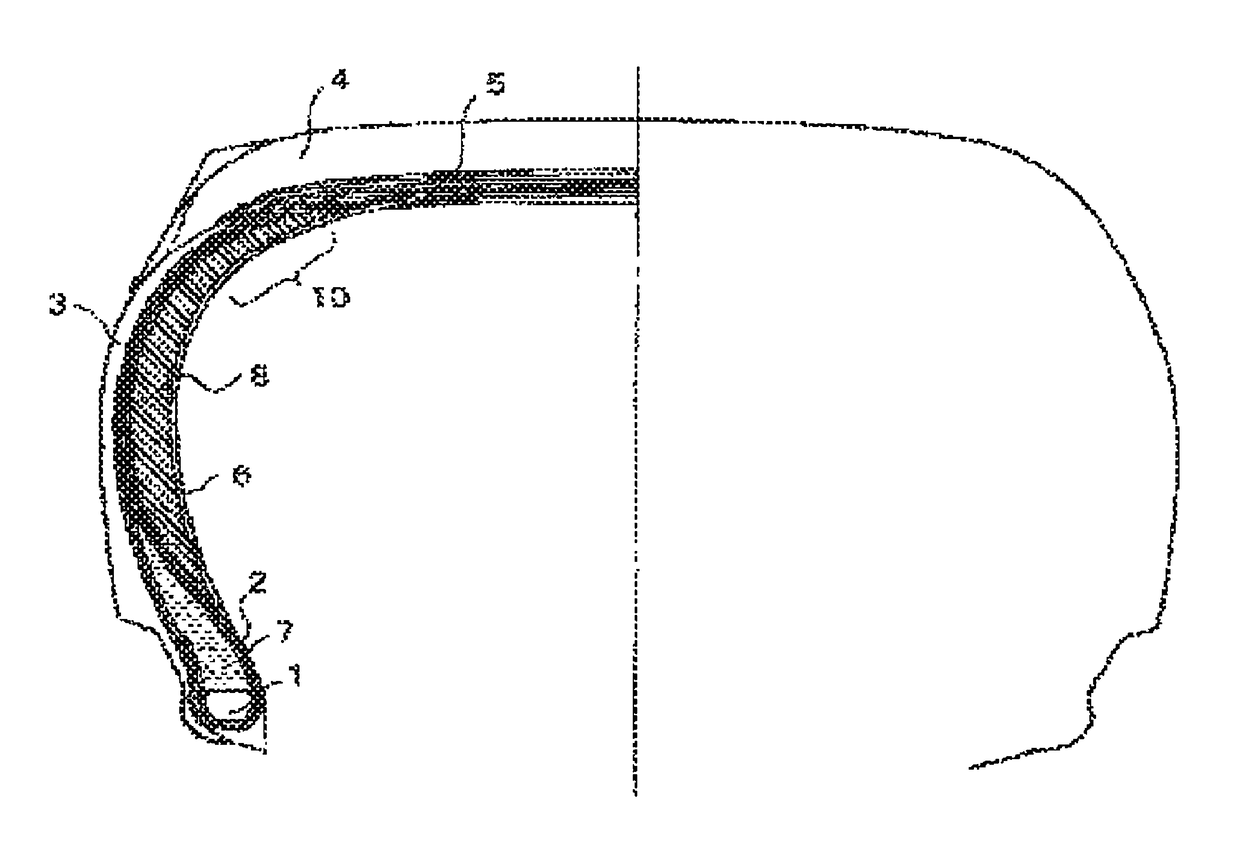Method for producing modified conjugated diene polymer/copolymer, modified conjugated diene polymer/copolymer, and rubber composition and tire using the same
a technology of conjugated diene and polymer, which is applied in the direction of transportation and packaging, tyre beads, special tyres, etc., can solve the problems of unavoidable damage to the tire, drop in processability (workability of unvulcanized rubber composition), and tire having a side-reinforcing layer, etc., to achieve the effect of reducing the amount of volatile organic compounds, reducing heat buildup and suppressing properties
- Summary
- Abstract
- Description
- Claims
- Application Information
AI Technical Summary
Benefits of technology
Problems solved by technology
Method used
Image
Examples
synthesis example 1
Synthesis of Organic Silane Compound a Employed in Modification Reaction Step
[0394]In a dried and nitrogen-purged glass pressure vessel (capacity: 300 mL), a 1-mol / L solution of N-(1,3-dimethylbutylidene)-3-(triethoxysilyl)-1-propanamine in cyclohexane was prepared. To the solution, a 2-mol / L solution of methyllithium (MeLi) in diethyl ether was added dropwise in such an amount that the ratio of Li / Si (mole) was adjusted to 2, and the mixture was sufficiently stirred, to thereby prepare modifying agent solution (a) of organic silane compound a; i.e., N-(1,3-dimethylbutylidene)-3-(dimethylethoxysilyl)-1-propanamine.
[0395]Note that N-(1,3-dimethylbutylidene)-3-(triethoxysilyl)-1-propanamine employed was “Sila-ace S340” (trademark, Chisso Corporation).
synthesis example 2
Synthesis of Organic Silane Compound B Employed in Modification Reaction Step
[0396]In a dried and nitrogen-purged glass pressure vessel (capacity: 300 mL), a 1-mol / L solution of 3-dimethylaminopropyltrimethoxysilane in cyclohexane was prepared. To the solution, a 1-mol / L solution of methyllithium (MeLi) in diethyl ether was added dropwise in such an amount that the ratio of Li / Si (mole) was adjusted to 2, and the mixture was sufficiently stirred, to thereby prepare modifying agent solution (b) of organic silane compound b; i.e., 3-dimethylaminopropyl(dimethoxy)methylsilane.
synthesis example 3
Synthesis of Organic Silane Compound c Employed in Modification Reaction Step
[0397]In a dried and nitrogen-purged glass pressure vessel (capacity: 300 mL), a 1-mol / L solution of N-(3-triethoxysilylpropyl]-4,5-dihydroimidazole in cyclohexane was prepared. To the solution, a 1-mol / L solution of methyllithium (MeLi) in diethyl ether was added dropwise in such an amount that the ratio of Li / Si (mole) was adjusted to 1, and the mixture was sufficiently stirred, to thereby prepare modifying agent solution (c) of organic silane compound c; i.e., N-(3-methyldiethoxysilylpropyl]-4,5-dihydroimidazole.
PUM
| Property | Measurement | Unit |
|---|---|---|
| nitrogen adsorption specific surface area | aaaaa | aaaaa |
| nitrogen adsorption specific surface area | aaaaa | aaaaa |
| temperature | aaaaa | aaaaa |
Abstract
Description
Claims
Application Information
 Login to View More
Login to View More - R&D
- Intellectual Property
- Life Sciences
- Materials
- Tech Scout
- Unparalleled Data Quality
- Higher Quality Content
- 60% Fewer Hallucinations
Browse by: Latest US Patents, China's latest patents, Technical Efficacy Thesaurus, Application Domain, Technology Topic, Popular Technical Reports.
© 2025 PatSnap. All rights reserved.Legal|Privacy policy|Modern Slavery Act Transparency Statement|Sitemap|About US| Contact US: help@patsnap.com



